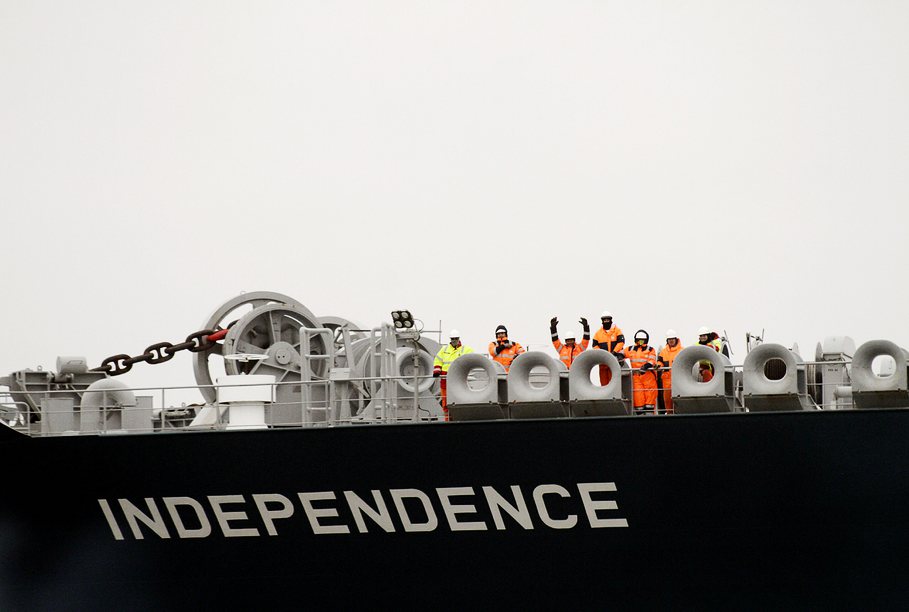The enormous vessel, built in Korea to serve Lithuania’s liquefied natural gas (LNG) terminal, will be welcomed later by prime minsters Taavi Roivas from Estonia and Laimdota Straujuma from Latvia, as well as delegates from the US Senate, Norway, Finland, Sweden and the European Commission (EC).
Lithuania’s Energy Minister Rokas Masiulis told LRT that the arrival of the Independence helps resolve two key energy supply issues facing the nation – i.e. its dependence on gas and electricity imports. Lithuania supplies much of its electricity from gas-burning power plants, Masiulis explained.
The FSRU means energy independence both for Lithuania as well as for Estonia and Latvia, the minister added.
“This energy independence can be shared. Since we are connected with Latvia and Estonia, we can share our energy and our neighbors can share benefits… Not only Lithuania gained energy independence but, partially, our neighbors, too,” Masiulis said.
Meanwhile, Amos J.Hochstein, Acting Special Envoy and Coordinator for International Energy Affairs leading the Bureau of Energy Resources at the US Department of State, warned that gas was not the only key to solving Baltic energy supply issues, but that now Lithuania would be part of the global gas market, marking an important milestone. Lithuania, Latvia and Estonia were an “energy island” several years ago, Hochstein noted.
He noted that the Baltic countries needed an alternative. “The highest bidder gets the gas. But it’s about markets.”
The opening of the LNG facility was an important milestone in particular as at the conference.
“That’s why we’ve been inspired by what Lithuania’s done,” he said.
In anticipation of the LNG terminal’s launch, Lithuanian consumers were already feeling some cost-relief as Russia’s gas giant Gazprom lowered prices by 20%.
"This has made up for the costs of constructing the terminal four-fold," according to Masiulis, adding that if Gazprom had not cut the price, the surcharge would have been four times the LNG terminal's construction costs.
State-run company Klaipėdos Nafta (Klaipėda Oil) invested €100m into the terminal, while Klaipėda Seaport Authority contributed about €38m. The terminal's jetty, which cost €35m, was constructed by Latvia's BMGS, while PPS Pipeline Systems is finishing a €33m pipeline extension.
Lithuania has signed a five-year contract with Norway's Statoil to supply minimum LNG volumes - 0.54bn cubic metres per year - to ensure the terminal's smooth operation.
In its energy security strategy drafted last May, the EC said that the Klaipėda terminal was the only feasible way of diversifying the Baltic countries' gas supply sources in the short term.
The official government, parliamentary and other delegates will take part in an official welcoming ceremony for the Independence later Monday.






























